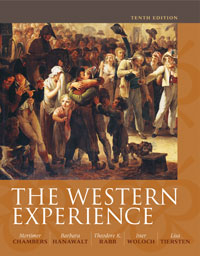| |
Answer choices for questions
1
through
8 | | A) | Philosophy that questions whether human beings can ever achieve certain knowledge.
| | B) | Ornate style of art, music, literature, and architecture that emerged in the seventeenth century, characterized by an emphasis on grandeur, power, drama, and rich color.
| | C) | A movement in the arts that seeks to recapture the style and the subjects associated with ancient Greece and Rome.
| | D) | The succession of discoveries and the transformation of the investigation of nature that was brought about in the fields of astronomy, physics, and anatomy during the sixteenth and seventeenth centuries.
| | E) | Theory of how one obtains and verifies knowledge or truth.
| | F) | In traditional astronomy, small circular orbits, revolving around the main circular orbit, that planets follow as they move through the sky.
| | G) | A sixteenth- and seventeenth-century school of philosophy dedicated to the revival of moral values, such as calmness, self-discipline, and steadfastness, first advanced by the Stoics in ancient Greece and Rome.
| | H) | Starting with observation, the logical process by which one moves to general principles.
|
|
|





